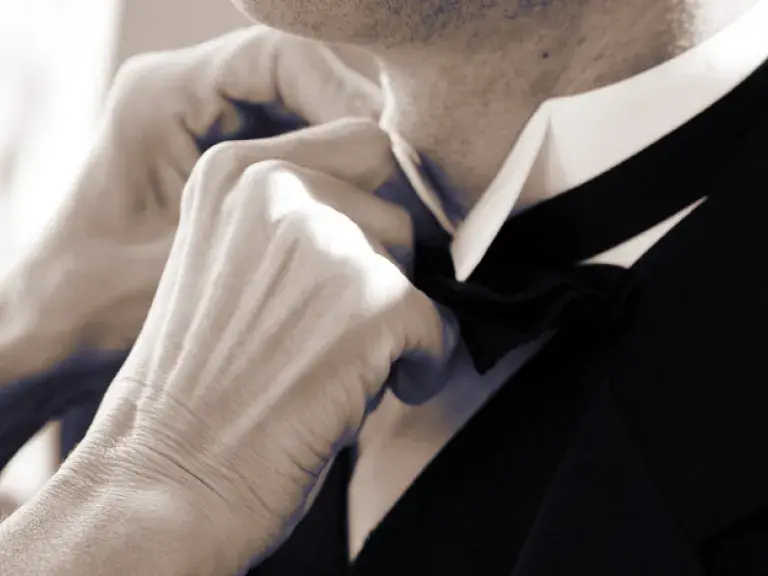
I frequently find myself getting into Joe's cab, grateful that he hangs around our building ready to take residents wherever we want to go. I'm also grateful that he always has WFMT radio playing—Chicago's major classical music station.
One day I inquired about his interest in classical music. He waxed eloquently about his passion for music, rattling off one major composer after another, revealing that his favorite is Arvo Pärt (!). He confided that his dream is to someday go to a concert at Orchestra Hall to hear the Chicago Symphony Orchestra and Chorus. "I can fix that for you. When would you like to go?" I said, unprepared for his response—you guessed it—"But I don't have a tuxedo."
Dumbfounded, I considered my words for a tactful response: "You don't need a tuxedo to go to a symphony concert. Do you have a shirt and sweater? You'll feel comfortable dressed casually as there are many of us who dress rather simply when we attend concerts."
"But doesn't everyone wear tuxedos?"
"No. Just the performers, except perhaps on opening night of the season when the patrons enjoy a gala evening all dressed up in their posh threads."
We got everything worked out and at age 34, Joe went to his first live classical performance at Orchestra Hall, the Berlioz Requiem. (What an initiation.) Needless to say, the next time I got into his cab he had a lot to say. He was overwhelmed by the beautiful (very loud) music and the dazzling splendor of our 1904 Beaux Arts concert hall. And then the questions started.
"How do I know when to clap? The senior citizen next to me scolded me when I started clapping. Why does everyone clap when the man with the violin walks out on stage? Why do they turn out the lights so that I can't read the translation of the text in my program?"
I think most of us have heard these kinds of questions at various times, but my encounters with Joe have haunted me about the realities of our troubled industry. We have created an elitist culture around classical music—Ascot Races, as it were—about clothes and small talk and polite applause, and then we wonder why the cabbies and the Cubbies don't come to our concerts. It's not just the high ticket prices. After all, they will spend the same amount of money at a baseball game as is required for a mid-priced ticket to a concert. So we can't get off that easily when explaining away their reluctance to attend our concerts.
I was in a reverse situation not long ago when one of Chicago's celebrity DJs grabbed me by the nape of the neck and made me attend a hard rock concert—the first of my life. I was "totally" amazed by the audience (which I found considerably more interesting than the music) and baffled by some rock concert traditions.
"Does the audience stand for the entire concert?"
"Sure, Dude. That's how they groove."
"Do they talk all the time?"
"Uh, yeah. Duh."
I learned a lot about this counter culture, as we once called it, while now the tables have turned and classical music is itself counter to much of our populist culture. By the end of the evening I actually found myself saying to my host, "I want to take that sign over the door with me and hang it in Orchestra Hall."
No spitting. No body surfing. No moshing.
It just might help in our continuing efforts to bring better decorum to our unruly Mahler audiences. Hmm.
It may be time for us to embrace the 21 st century and admit that our concert traditions need scrutiny, a fresh perspective, and some serious, as well as not-so-serious overhauling. In future issues of the Voice, guest writers will examine some of the obvious issues that discourage young audiences who are accustomed to slick, well-paced performances in other arenas:
- Why not clap when you are excited about something?
- Can that four-minute stage change be reduced to two minutes?
- Are the program notes audience-friendly?
- What about program notes written by a performer? A member of the chorus who has spent many hours with a piece may be able to bring the music alive in a way that could enrich the audience's experience.
- Why not segue from one number into the next without a pause, when appropriate, in order to create a stronger flow to an already well-constructed program?
- Should the chorus sing from memory on occasion?
- Is formal attire necessary all the time?
Who needs a tuxedo after all?
This article is adapted from The Voice, Summer 2005.

